In the rearview mirror of my past, there exists a chapter stained with the shadows of an unhealthy relationship — one that left an indelible mark on my psyche. As I reflect on those tumultuous times, I now see the subtle yet insidious signs of an unhealthy relationship that I, like many, initially overlooked. It’s often said that love is blind, but we seldom consider that it can also be deaf to the silent alarms of toxicity. In the initial throes of infatuation, I found myself entangled in a web woven with red flags, a tapestry of warning signs that hindsight now illuminates with unsettling clarity.
As I journey through the labyrinth of my memories, the echoes of manipulation and emotional turmoil reverberate. The tale of my unhealthy relationship serves as a poignant narrative — a cautionary beacon for those navigating the stormy seas of romantic relationships. This introspective exploration, along with the insights from counseling psychologist Dhriti Bhavsar (M.Sc, Clinical Psychology), who specializes in relationship, breakup, and LGBTQ counseling, aims to shed light on the subtle nuances that often elude our perception, urging us to recognize the red flags that can forewarn against the treacherous traits of an unhealthy relationship.
What Is An Unhealthy Relationship?
Table of Contents
An unhealthy relationship is a web of emotional discord, where the foundations of mutual respect, trust, and communication begin to crumble under the weight of dysfunction. It transcends occasional disagreements or the natural ebb and flow of partnerships, delving instead into a realm where toxicity becomes the prevailing force.
At its core, an unhealthy relationship is characterized by a persistent struggle for power and control, fostering an environment where one person seeks dominance over the other. This power dynamic can manifest in various forms, from subtle manipulation and emotional coercion to outright intimidation and physical abuse.
According to this study, “Broadly, unhealthy relationship patterns are behaviors or communication expressions that have been consistently empirically linked to current or future negative relationship functioning. Unhealthy relationship behaviors can be operationalized in many ways including negative relationship maintenance behaviors (Dainton & Gross, 2008), such as jealousy or allowing control, physical aggression or violence, and the expression of unhealthy communication patterns.”
Communication, the lifeblood of any thriving relationship, often withers in the shadows of this dysfunction. An unhealthy relationship is marked by a breakdown in honest and open dialogue, the cornerstone of healthy communication, replaced by passive-aggressive behaviors, stonewalling, or, in some cases, explosive confrontations involving physical or verbal abuse. It becomes a landscape where genuine connection is replaced by a facade, where masks are worn to conceal true feelings for fear of reprisal or rejection, and it becomes difficult to avoid sarcasm.
In this corrosive atmosphere, the seeds of doubt and insecurity take root, sowing the grounds of your relationship for a perpetual cycle of misunderstanding and resentment. A poor relationship deviates from the path of growth and mutual support, instead ensnaring you and your partner in a web of emotional turmoil that stifles individual well-being. Recognizing these patterns is the first step toward liberation from the shackles of a bad relationship, paving the way for healing and a renewed sense of self.
Related Reading: In An Unhealthy Relationship? A Step-by-Step Guide To Break Free
5 Types of unhealthy relationships
While this broad definition of a poor relationship may have given you some perspective, not all problematic patterns are created equal. Toxicity can creep into your romantic connection in different ways. Sometimes even the most seemingly normal relationships can prove to be unhealthy for both partners involved, making it hard to tell the difference between healthy and unhealthy relationships. Let’s take a look at the different types of unhealthy relationships examples for clarity:
- Abusive relationships: If your partner seeks to exert control over you with total disregard for your agency as an individual, it’s time to identify it as one of the most alarming signs of an unhealthy relationship with boyfriend/girlfriend/partner/spouse and look for an out or at least have a safety plan
- Resentful relationships: Dhriti says, “This is toxic relationships psychology 101. A person will often avoid confronting their partner out of fear of rejection. These bottled-up emotions eventually manifest as growing discomfort, resentment, and bitterness toward their partner. This is unhealthy behavior that makes a relationship toxic.”
- Codependent relationships: In a codependent marriage or relationship, there is an identity crisis, and you unwittingly start enabling your partner’s unhealthy behaviors and problematic patterns, or vice versa, because of the fear of losing the other partner
- Carefree relationships: While a carefree relationship is great when you’ve just begun dating, it veers into unhealthy territory if despite having been together a long time, your relationship hasn’t progressed from feel-good sexual activity to a more stable and dependable version of itself
- Stagnant relationships: Sometimes a relationship may have no tell-tale warning signs of an unhealthy relationship such as abuse, resentment, or codependency and you may still feel unhappy in the relationship due to stagnation and monotony
How To Identify You Are In An Unhealthy Relationship
Identifying the shift from a harmonious connection to an unhealthy relationship involves recognizing subtle yet significant changes in the dynamics between partners.
- Palpable tension: One telltale sign of unhealthy relationship characteristics emerges when unresolved issues become a persistent undercurrent, creating a palpable tension that permeates everyday interactions
- Unresolved conflict: In a healthy relationship, conflicts arise but are met with open communication and a genuine effort to resolve differences. However, when issues linger, fester, and multiply without constructive resolution, it becomes a red flag in the relationship indicating potential trouble. As a result, a couple may find themselves caught in a cycle of repetitive arguments, unable to break free from the shackles of unaddressed concerns
- Poor communication: One of the first signs of an unhealthy relationship is a perceptible decline in healthy communication. In the initial stages, couples often revel in the ease with which they share thoughts, feelings, and dreams. As the relationship takes an unhealthy turn, dialogue becomes strained or, in some cases, nonexistent
- Hiding true feelings: A couple in an unhealthy relationship might notice a growing reluctance to express their true emotions, fearing judgment, rejection, or the escalation of conflicts. When communication becomes guarded or replaced by silence, it signifies a departure from the foundation of understanding that sustains healthy relationships
- Power imbalance: A shift in the balance of power and control also signifies an unhealthy trajectory toward negative scenarios. In a thriving relationship, decisions are typically made collaboratively, with mutual respect for each other’s autonomy. When the relationship develops unhealthy power dynamics, one partner may begin to exert dominance, making unilateral decisions that disregard the needs and desires of the other. This power imbalance can manifest in various forms, such as manipulation, coercion, or attempts to isolate the other from support systems among other unhealthy relationship behaviors
Related Reading: Emotional Abuse Checklist – 18 Devastating Signs
Dhriti says, “A poignant manifestation of emotionally unhealthy relationships emerges when one partner finds themselves tiptoeing on fragile ground, wary of setting off emotional landmines. This delicate dance, akin to walking on eggshells, signifies an atmosphere where open communication and genuine expression are stifled. In an attempt to avoid hardships or conflicts, one partner may resort to concealing their true feelings, fearing the repercussions of authenticity.”
Recognizing these unhealthy relationship characteristics becomes crucial for individuals navigating the complexities of their relationships, serving as a compass for introspection and potential intervention.

9 Signs Of An Unhealthy Relationship To Watch Out For
As you just saw, there are different types of unhealthy relationship examples, and each comes with its own set of underlying triggers and reasons. Some unhealthy relationships stem from abuse, others from jealousy or insecurity. But all have the warning signs of a bad relationship. Here are 9 warning signs of an unhealthy relationship that you should pay attention to save yourself before it is too late.
1. You’ve allowed your relationship to take center stage
Maintaining a delicate balance between personal relationships and other facets is crucial for holistic well-being. However, a red flag emerges when a romantic partnership becomes an all-consuming priority, eclipsing other vital aspects such as work, family, and hobbies. The moment one feels a palpable distance growing from these diverse spheres, and their partner catapults to the forefront as priority number one, it signals potential trouble. This kind of obsessive love is one of the first signs of an unhealthy relationship as we tend to get swept away by a new romance.
Dhriti explains, “While prioritizing a relationship is natural, an exclusive focus at the expense of personal growth and diverse connections can lead to isolation and a diminished sense of self. It’s imperative to recognize the importance of equilibrium, ensuring that love and connection coexist harmoniously with individual pursuits, personal goals, and broader life experiences as a first step in learning how to fix an unhealthy relationship.”
2. One of you refuses to change despite repeatedly promising to
Promises of change within a relationship can carry the weight of hope and expectation, but when these assurances remain unfulfilled, a troubling narrative unfolds. In the ensuing cycle of emotional turbulence, the failure of a partner to follow through on their commitment to change becomes a poignant sign of an unhealthy dynamic, very common when you’re dating an alcoholic. Whether it’s breaking unhealthy patterns or addressing specific issues, the inability or unwillingness to enact meaningful change can deepen the rift between individuals.
The chasm widens, leaving the promise of transformation as an empty echo that reverberates through the fabric of the relationship. Recognizing and paying close attention to these problematic patterns and signs of an unhealthy relationship with boyfriend/girlfriend/spouse is essential for those navigating the delicate terrain of love, prompting a reassessment of whether the foundations of trust and growth are sustainable or if it is time to confront the painful reality of unmet expectations.
Related Reading: Avoid Being In A Toxic Relationship By Discarding These Things
3. Your relationship has become one-sided
Equilibrium is paramount for a relationship to thrive. However, when the scales tip and the connection becomes distinctly one-sided, it unfurls a narrative of imbalance. A one-sided relationship is akin to a ship navigating stormy seas with only one oar; progress becomes strained, and the burden disproportionately falls on one partner. Whether it’s an uneven distribution of emotional support, shared responsibilities, or a lack of reciprocity in efforts, the toll is palpable.
The partner putting more effort into things like problem-solving can feel emotionally drained and unfulfilled, while the imbalance threatens the very foundation of mutual respect. Recognizing this unequal relationship is the first step toward restoring equilibrium, prompting a crucial conversation about shared responsibility and the essence of true partnership.
Dhriti remembers a client who experienced this first-hand and came to her for professional help in ending a bad relationship. “My client was a fairly successful professional and he used to give his girlfriend money so that she could go clubbing with her friends. Whenever he said no or tried to put his foot down, she would resort to emotional blackmail and gaslighting, making my client feel guilty to the point where he experienced crippling self-doubt and genuinely started to question his own actions,” she shares.
Related Reading: 8 Signs Your Wife Disrespects You (And How You Should Deal With It)
4. One partner avoids communicating their needs out of fear of rejection
The fear of rejection can cast a long shadow, stifling the authentic expression of one’s needs and desires. When a partner hesitates to communicate their fundamental need for daily connection, it creates a silent struggle that permeates the emotional landscape. For instance, the unspoken desire for regular phone calls, though deeply felt, may remain concealed, often rooted in the apprehension of potential rejection or perceived imposition, frequently expressed in the statement, “You’re so clingy/needy.” This accusation is damaging to one’s self-worth and does nothing to solve communication problems in relationships.
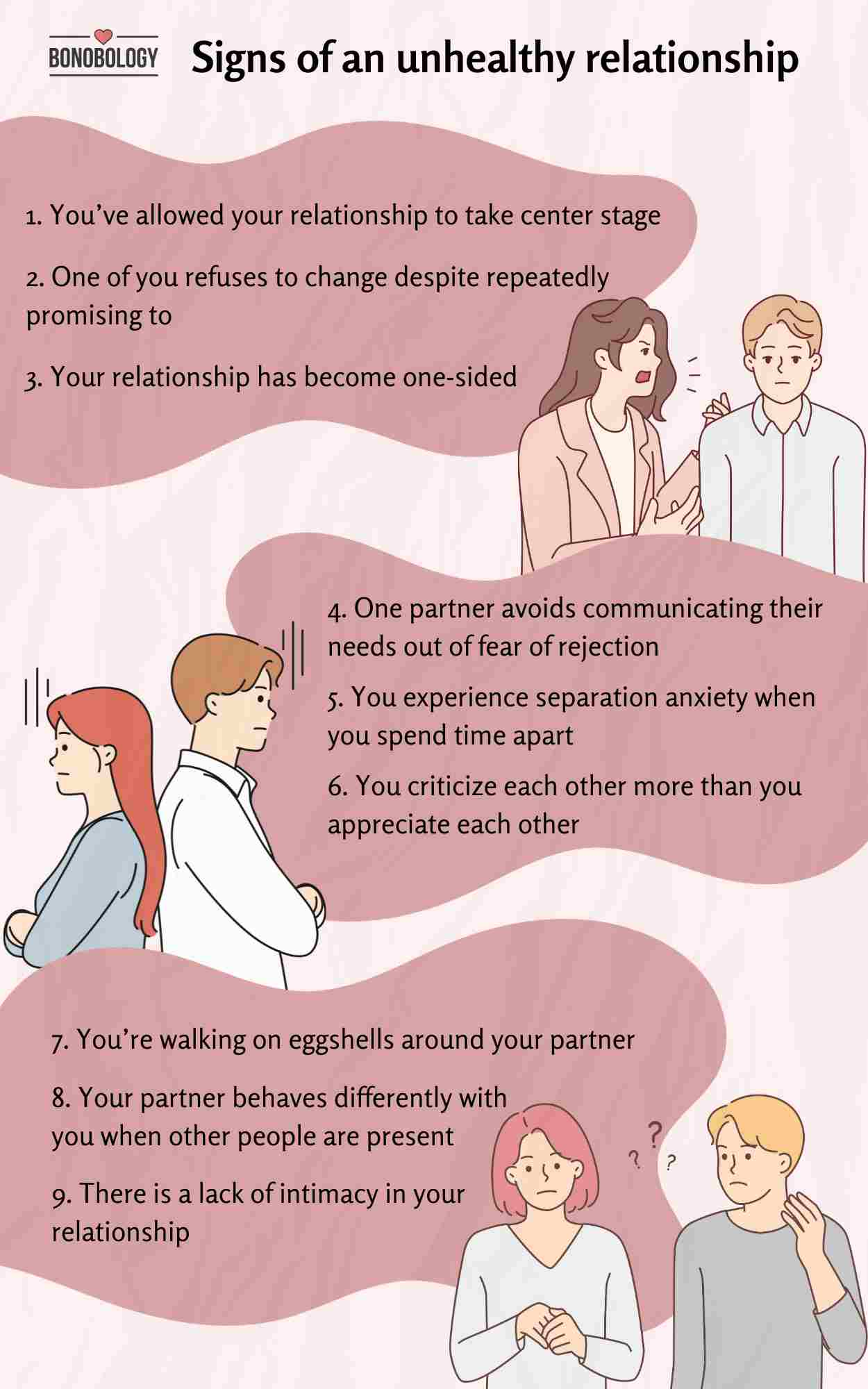
This Reddit user says, “I’ve noticed that my anxiety gets noticeably worse when I’m in an ill-fitting relationship. For example, in my last relationship, if my guy and I didn’t text or hang out for a while, I’d begin to question everything, like whether he was still into me, or if I had done something wrong, or if I was making all of it up in my head. I’d spend time beating myself up in my mind for things out of my control and stressing and obsessing way too much about the relationship. Now I’m with a guy who makes me feel completely safe and secure, and I know that even if there’s a period of time where we don’t text or see each other, that our feelings haven’t changed and that everything’s okay. I feel mentally secure and can focus on other things when he’s not around.”
“This hesitation erects a barrier to the open exchange of feelings, fostering an environment where unmet emotional needs linger in the shadows. Breaking free from this cycle requires a courageous step into vulnerability, fostering a dialogue that transcends fear and nurtures a connection founded on mutual understanding and responsiveness. It’s a journey toward creating an atmosphere where both partners feel secure in expressing their authentic selves, fostering a bond that thrives on open communication and shared emotional intimacy,” says Dhriti.
Related Reading: 10 Must-Follow Healthy Relationship Boundaries
5. You experience separation anxiety when you spend time apart
The aftermath of a temporary separation can be a precarious terrain for relationships, often revealing the cracks in the foundation of trust. When trust issues persist, manifesting in heated conflicts during moments of separation, it becomes a poignant signal of deeper relational fractures. The physical or emotional distance between partners becomes a breeding ground for suspicion, insecurity, and constant stress, causing you to lose confidence in yourself.
Whether rooted in past betrayals or a fear of the unknown, these trust issues can manifest as explosive disagreements, exacerbating the challenges already inherent in navigating a temporary separation. Addressing and resolving these trust issues is pivotal in learning how to fix an unhealthy relationship, allowing both partners to heal and fostering a renewed sense of security in the wake of life’s inevitable twists and turns.
Related Reading: Has Your Husband Checked Out Emotionally? 12 Signs Of a Failing Marriage
6. You criticize each other more than you appreciate each other
The balance between criticism and appreciation plays a pivotal role in shaping the overall dynamic between a couple. The concept known as the Gottman Ratio underscores the importance of maintaining a healthy balance between positive and negative interactions within a partnership. However, when the scales tip toward persistent patterns of criticizing each other rather than expressing appreciation, it becomes a foreboding sign of controlling behaviors.
Dhriti says, “Constant criticism can erode the emotional foundation, fostering an atmosphere of negativity that stifles growth and connection. The art of maintaining a positive Gottman Ratio involves a conscious effort to infuse expressions of gratitude, kindness, and admiration into the relationship. Striking this balance is not just a mere act of sentimentality; it’s a fundamental building block for creating a resilient and thriving connection that withstands the challenges of time.”
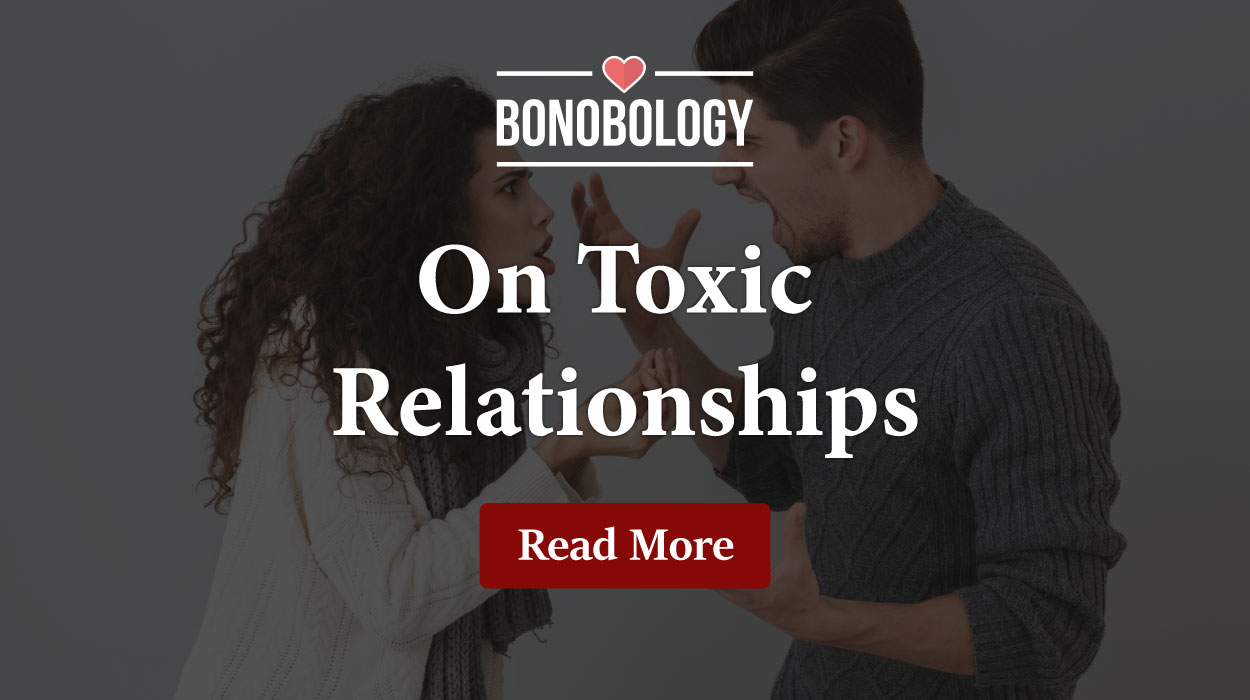
7. You’re walking on eggshells around your partner
A concerning dynamic emerges when one finds oneself walking on eggshells, concealing one’s true feelings to avert potential hardships. This cautious navigation, born out of a desire to avoid conflict or discomfort, signifies an underlying tension within the relationship and a lack of healthy boundaries. The suppression of genuine emotions, especially while always considering other’s feelings, creates an atmosphere where open communication becomes a casualty, and the unspoken becomes a prevailing force.
Dhriti says, “Hiding feelings to sidestep potential challenges might offer temporary reprieve, but it forms a fragile foundation that inhibits the growth of true intimacy. This is basic toxic relationship psychology. Recognizing this pattern is pivotal; it prompts a reflection on the importance of fostering an environment where authentic expression is embraced, and hardships are navigated together, laying the groundwork for a relationship built on trust, transparency, and resilience.”
Related Reading: 8 Relationship Problems You Can Face If You Had Toxic Parents
8. Your partner behaves differently with you when other people are present
Dhriti says, “Witnessing a shift in your partner’s behavior depending on the audience, particularly when they indulge in name-calling or starting rumors in front of their friends or family members, unveils a disconcerting facet of the relationship dynamic. This duality suggests a disconnect between the private and public spheres of your connection. When your partner exhibits a different persona with friends and loved ones, especially one that involves belittling you and making you feel hurt in public or on social media, it raises questions about the authenticity of the bond and is one of the most important traits of an unhealthy relationship.”
A healthy relationship thrives on mutual respect and support, even in the company of others. If your partner disrespects you or constantly makes you feel bad about yourself when other people are around, that’s a huge red flag. Recognizing and addressing this incongruity is pivotal for maintaining the integrity of your partnership. It prompts a crucial conversation about the importance of consistent respect and kindness, fostering an environment where both private and public interactions reflect the true essence of a nurturing and respectful relationship.
Related Reading: The Fights With My Husband are Turning Ugly
9. There is a lack of intimacy in your relationship
A subtle yet significant sign of trouble emerges when physical intimacy begins to wane. While it’s natural for the intensity to ebb and flow in intimate relationships, a consistent decline may signal deeper issues. The absence of affectionate gestures, from simple touches to more intimate moments, can indicate emotional distance or unresolved issues within the relationship, which can harm your individual physical and mental health.
Physical intimacy is a vital expression of connection and can serve as a barometer for the overall health of a partnership in addition to emotional intimacy and sexual activity. When gestures of love and closeness diminish, it prompts a need for introspection. Addressing the root causes of this lack of affection and intimacy— whether rooted in communication breakdowns, emotional disconnection, or unmet needs — is crucial for revitalizing the physical dimension of the relationship and, ultimately, nurturing a bond that encompasses both emotional and physical connection.

What Should You Do If You Are In An Unhealthy Relationship?
If you could relate most of the signs and characteristics of unhealthy relationships, then the writing is on the wall. Your relationship with your significant other is not the healthy, wholesome bond you had hoped for — and deserve. The question is, what can you do about it? How can you help fix your toxic relationship?
Sometimes you have to choose to be your own savior. And stop waiting for things to get better or hold on to a harmful relationship just because you had thought and hoped that it would be your happily ever after. Take control of your life and destiny. Here is what you can do if you’re in an unhealthy relationship:
- Don’t be in denial: You have to accept the fact first that you are in an unhealthy relationship and consider other options
- Talk to your partner: You have to see if you can make your partner see how their behavior is affecting you
- Take a break: You could take a short break from the relationship and see how things go. Breaks sometimes work wonders
- You don’t deserve this: Be aware that staying in constant fear of fights and issues is not what you—or anyone—deserves
- Look for a way out: Everyone deserves to feel safe and happy, and if you are not finding that in your relationship then you should look for a way out
- Call it quits: Tell your partner clearly that you cannot take it anymore and since they have shown no willingness to mend their ways, you have decided to break up with them
- Seek help: The best thing you can do to accept that you’re in an unhealthy relationship and move on from it is to talk to a counselor and seek guidance. If you’re looking for professional help, skilled and experienced mental health professionals on Bonobology’s panel are here for you
You have to rise to the occasion to rescue yourself. Either work through your issues with your partner or understand the damage is beyond repair and think about ending a bad relationship. It may seem daunting in the moment, but breaking free from a toxic, unhealthy relationship can be liberating.
7 Habits Of Happy Couples In Strong And Healthy Relationships!
Your contribution does not constitute a charitable donation. It will allow Bonobology to continue bringing you new and up-to-date information in our pursuit of helping anyone in the world to learn how to do anything.

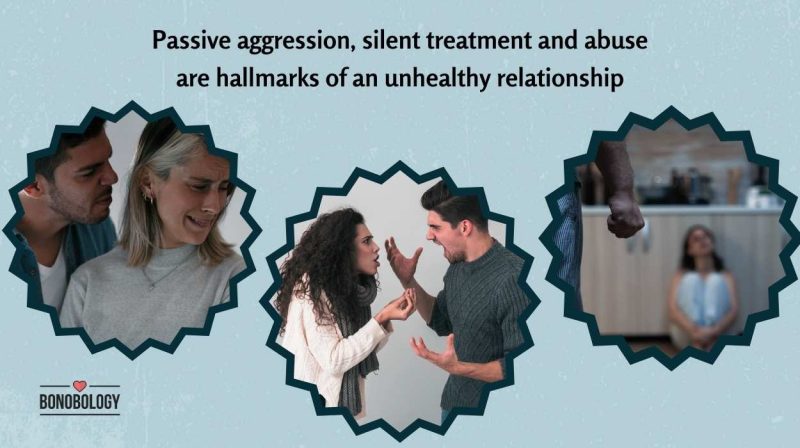
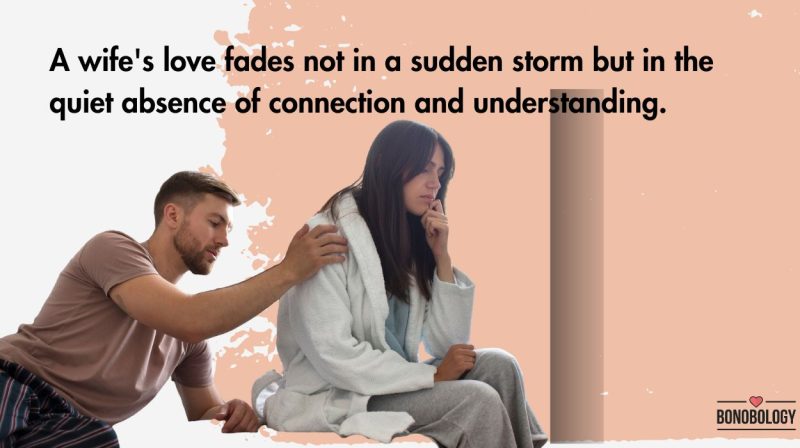
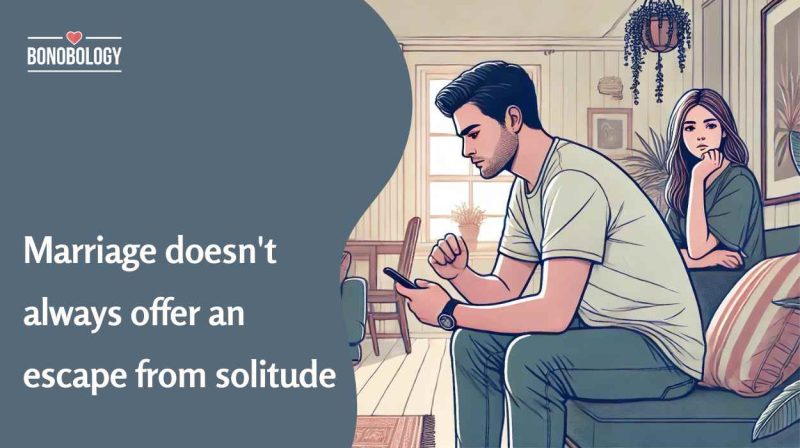


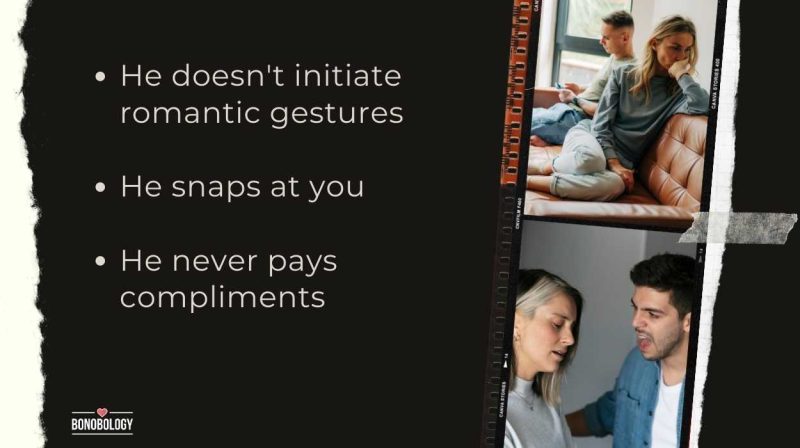



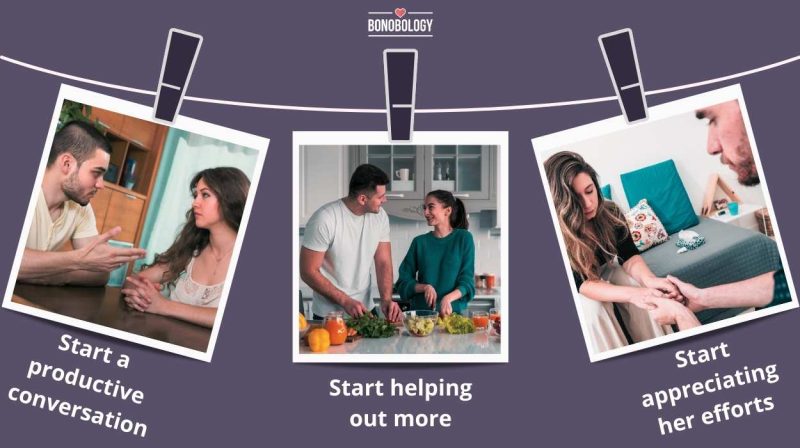
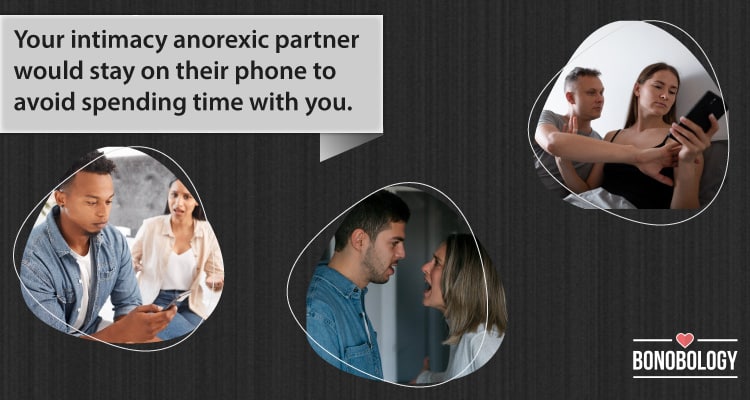
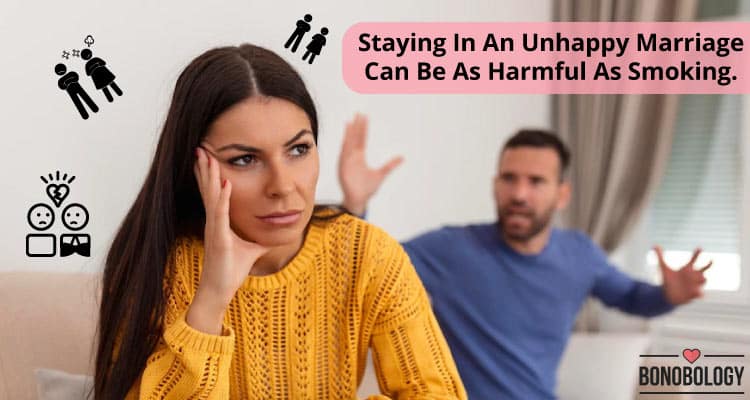
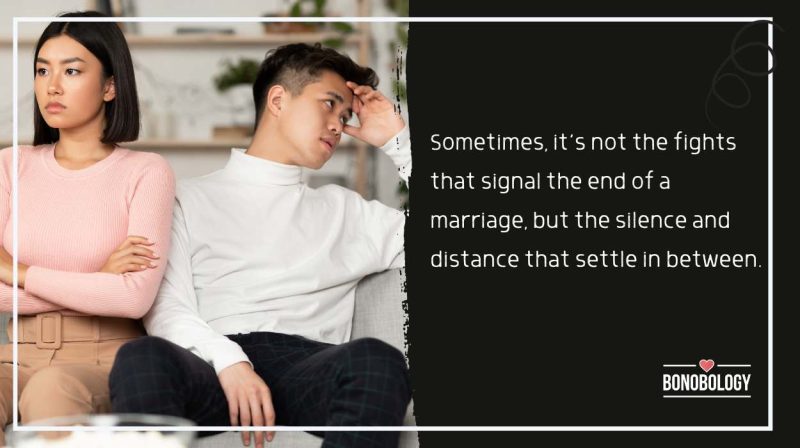
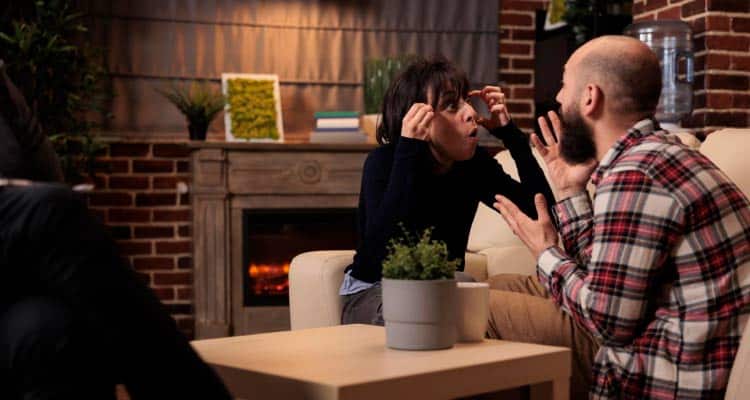
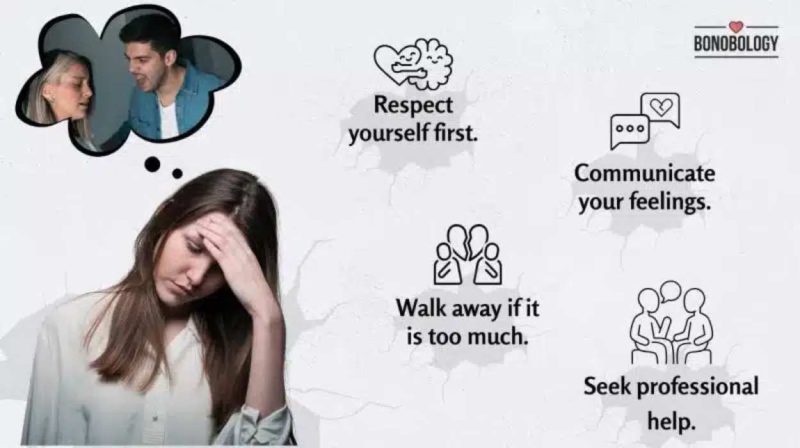
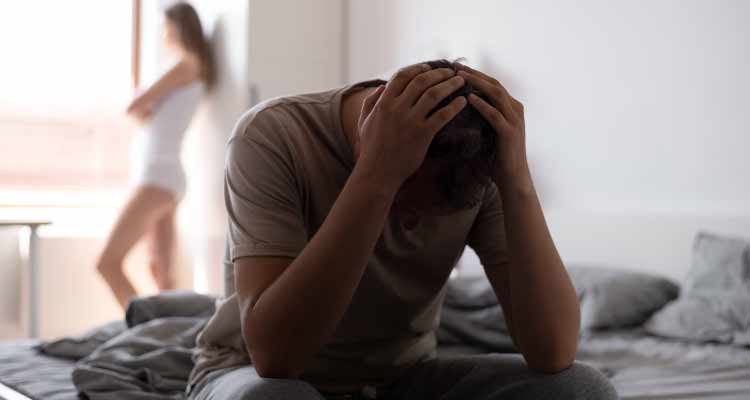
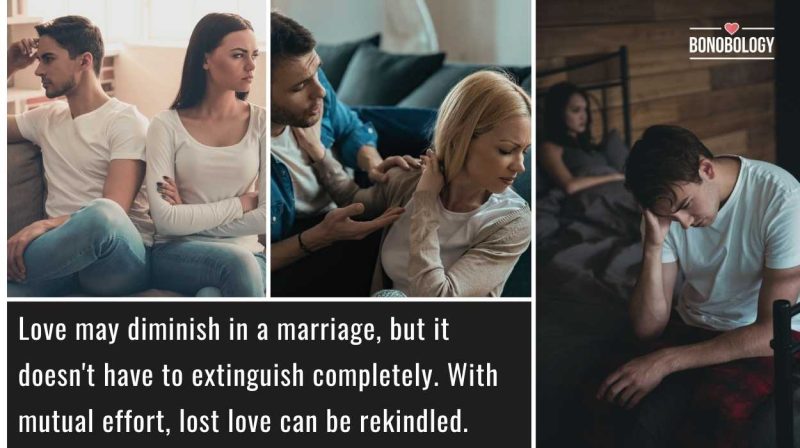
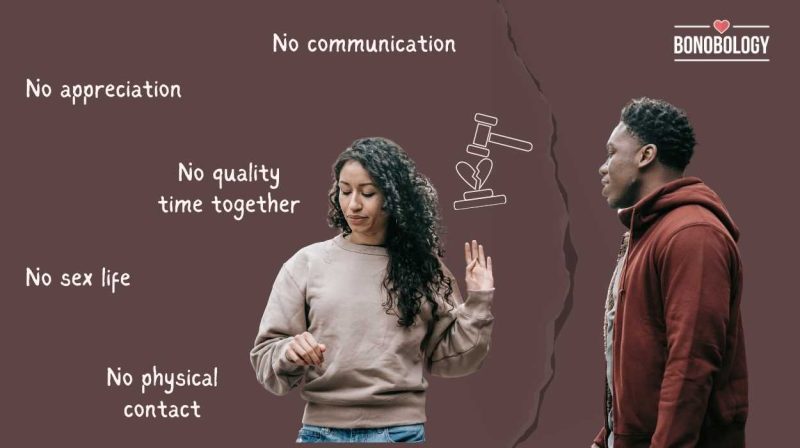
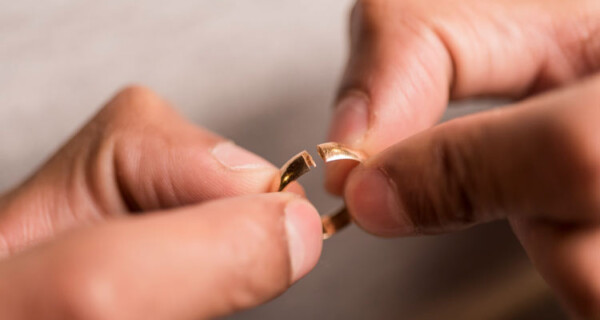

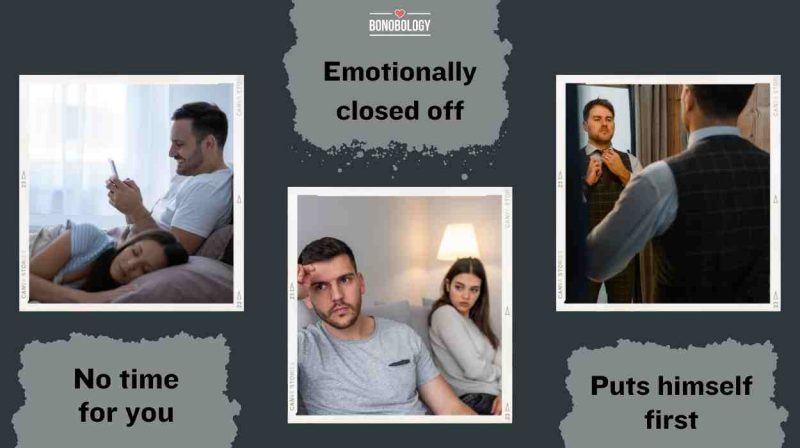
Featured
31 Cruel Signs Your Wife Doesn’t Love You Anymore
Married But Looking For Someone To Talk To? Therapist Explains What To Do
Why Am I So Turned Off By My Husband — 10 Reasons And Tips To Avoid
21 Signs Your Man Has Anger Issues And How To Cope
15 Worrying Signs Your Husband Doesn’t Find You Attractive And 5 Ways To Handle It
17 Agonizing Signs Your Husband Doesn’t Love You Anymore
11 Things That Happen When A Woman Loses Interest In Her Husband
11 Signs You Are Unhappily Married And In Love With Someone Else
My Wife Hates Me: 5 Signs, 8 Possible Reasons, And 9 Tips To Cope
Intimacy Anorexia, Causes, And Impact On Romantic Relationships – And Ways To Deal With It
I Hate My Husband – 10 Possible Reasons And What You Can Do About It
12 Heartbreaking Signs Your Marriage Is Over
9 Consequences Of Staying In An Unhappy Marriage
How To Handle A Husband Who Has No Respect For You Or Your Feelings
17 Signs A Marriage Cannot Be Saved
7 Things To Do When You Fall Out Of Love With Your Husband
13 Signs Your Wife Has Checked Out Of The Marriage
9 Stages Of A Dying Marriage
13 Subtle Signs Your Wife Is Not Attracted To You Anymore — And 5 Things You Can Do
14 Signs Your Husband Is Planning To Leave You